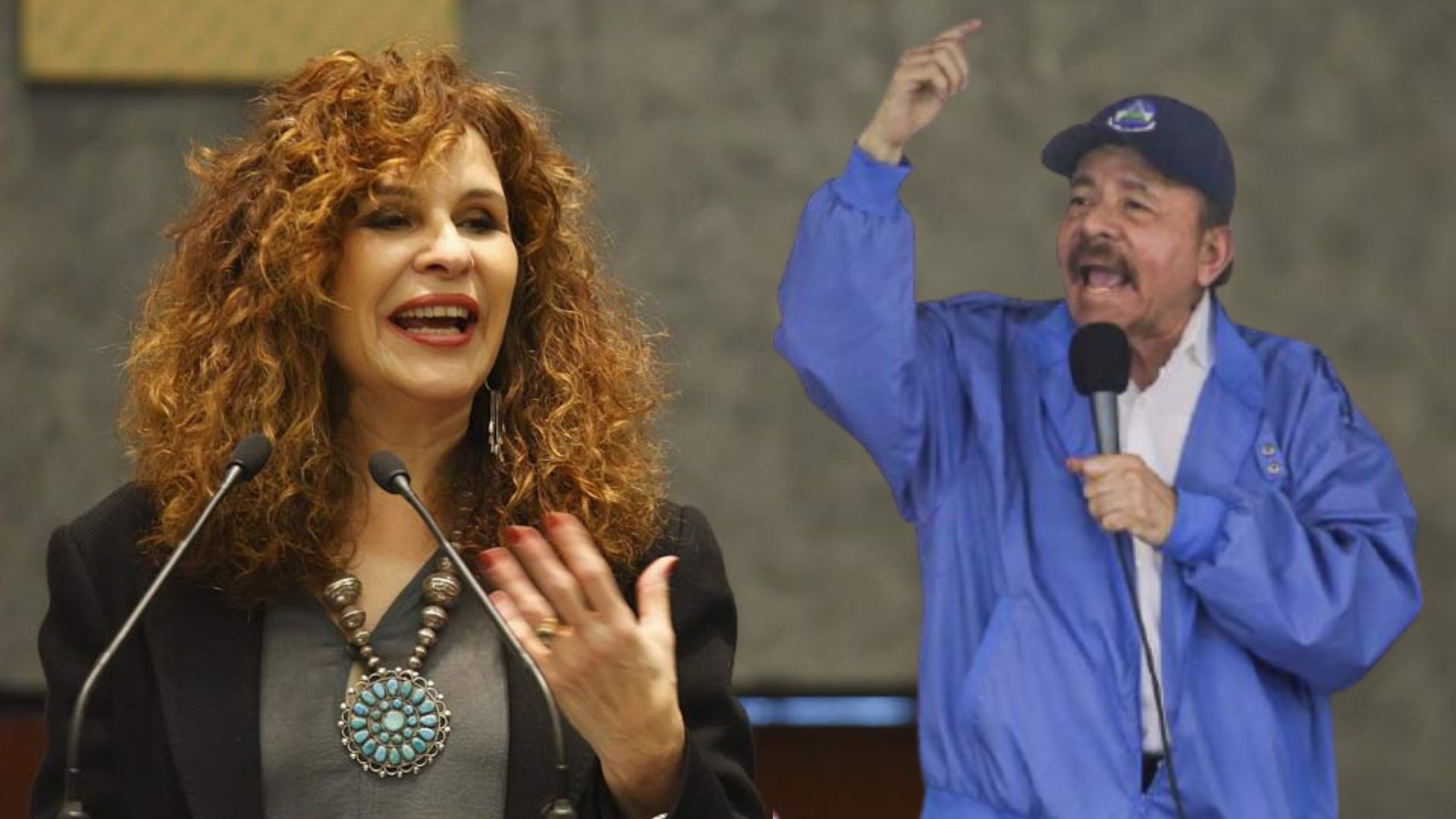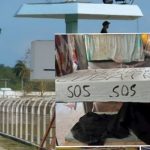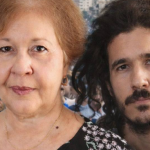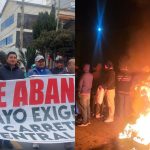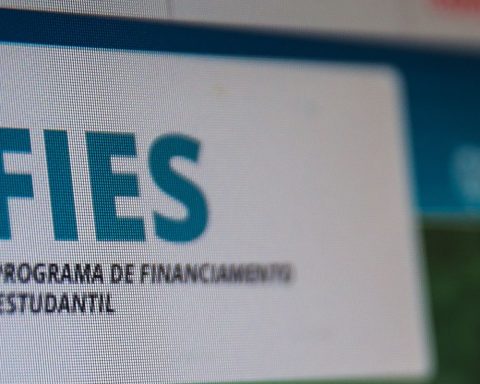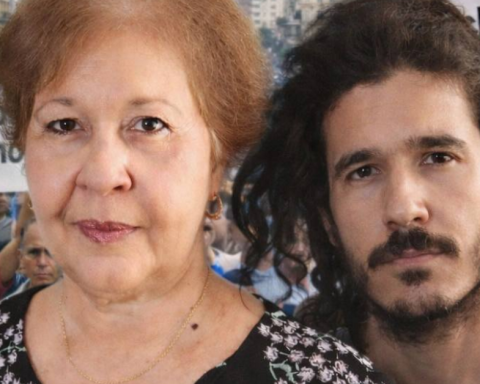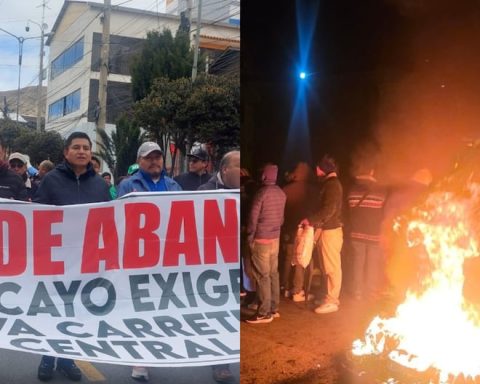The poet, novelist and persecuted politician of the Ortega-Murillo regime, Gioconda Belli, lamented that in her country “freedom has become a threat,” referring to the systematic repression directed by the Nicaraguan State, a scenario that she indicated is repeated in Cuba, generating disenchantment with the revolutions fought in those two nations.
“We (Nicaraguans) came out of the war against Somoza, to the war against the counterrevolution and now the elections are lost, 16 years of more or less democratic governments have passed where the people learned the meaning of freedom, because in the revolution we did not offer the true meaning of freedom (…) and in that context we did wrong things like the Patriotic Military Service, which took kids from 14 to 16 years old who had to go fight against the counterrevolution,” he acknowledged.
Related news: Luis Almagro demands Ortega “dismantle the system of repression and torture” against political prisoners
That dynamic, according to Belli, led her to reflect on the “so similar script that Nicaragua, Venezuela and Cuba live.” Now away from Sandinismo and critical of the current regime, which she points out as crushing revolutionary ideals with the desire to perpetrate herself in power and become an even crueler dictatorship than Somoza’s, she recalled the confiscations of the media in the country such as 100% Noticias and Confidencial, the imprisonment for the second time of the journalist Miguel Mora, the murder of the adolescent Álvaro Conrado and the excessive persecution against the Chamorro family, events recorded in the last four years after the beginning of the April rebellion in 2018.
“I had to leave Nicaragua because I wrote on my Facebook, on social networks and I have been writing opinion articles for a long time that are very critical of the government of Daniel Ortega. I left the Sandinista Front in 1993 because I saw all these maneuvers by (Daniel) Ortega to take over the Sandinista Front and he stopped representing me. I joined the Sandinista Front for Nicaragua and I saw that this man (Ortega) is doing wrong », he stressed.
He added the difficulties of suffering another exile. «I, at my age (73 years), am in another exile. Maybe and I’ll die without being able to return to Nicaragua and I was already in exile (he settled in Mexico in 1976 with the Somoza dictatorship at the head of Nicaragua) », he lamented. Belli decided not to return to Nicaragua after the escalation of repression against presidential candidates, activists, journalists, former diplomats and even writers.
Belli participated in a panel entitled Latin America and Freedom of Expression: Current Challenges, where she was accompanied by Cuban actor and playwright Yunior García Aguilera. The two exposed the similarities between the dictatorships of Daniel Ortega, Nicolás Maduro and Miguel Díaz-Canel, regimes that maintain oppression against citizens.
At the event, which was held this April 5 in Granada, Spain, the author of “The country of women” recounted the attack unleashed by Ortega prior to the “electoral farce” of November 2021, which ended with about 40 imprisoned opponents. “Ortega did not want anyone to cast the slightest shadow on him, he did not want to give anyone a chance to win the elections. I think he thought that whoever ran was going to win the election,” she said.
Related news: Miguel Mendoza’s daughter turns eight: “My only wish is to see you and hug you,” she tells her father
Under these premises, he insisted that harassment, police surveillance, control by the Powers of the State and armed institutions, threats with messages in homes and the withdrawal of passports are patterns shared by the dictatorships of Ortega, Díaz-Canel and Maduro.
Pattern of harassment and threats
Yunior García, for his part, recalled the “indoctrination” that exists in Cuba. “Our textbooks are militiamen who say they will defend the revolution to the last consequences,” he said, alluding to the fact that the regimes on the island blame the precariousness on “the United States, savage capitalism, the embargo” and thus delimit responsibilities internal that would be addressed to the State.
The opponent and leader of the Archipelago Movement, one of those who led the 2021 protests against Díaz-Canel, emphasized that the Cuban dictatorship is committed to censoring everyone, including artists; which implies keeping opponents of the regime imprisoned in their homes, without internet access, incommunicado and silenced. He suffered part of that persecution and arbitrary detention.
“You are going to go to jail for 27 years or more if you dare to march,” was the threat that prosecutors sent him days before the call. Another sign that he received was that at the door of his house they left two decapitated pigeons with the walls stained with blood.
The same day, when he had already decided to demonstrate alone in a peaceful way so as not to expose anyone, his house woke up surrounded by more than 300 people, who he assumes were plainclothes policemen, who came to insult and threaten him. “In this neighborhood you will not be able to walk peacefully again, nor will your family,” he recounted.
The reality of Venezuela also shares several parallels with that of Nicaragua and Cuba. According to Amnesty International, campaigns of stigmatization, harassment against journalists and censorship persist in the South American country. In addition, each citizen demonstration is attacked by the police, the Army or pro-government armed groups.
